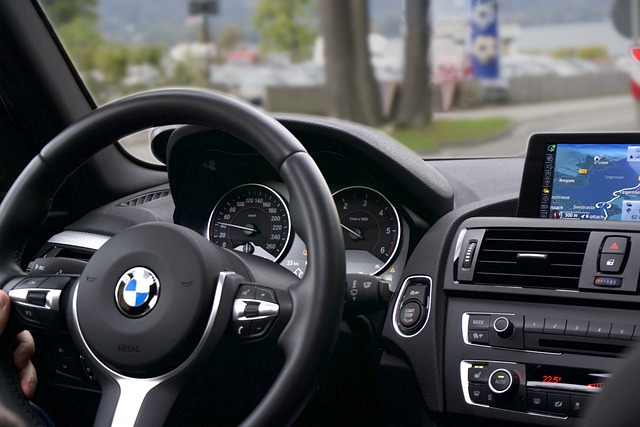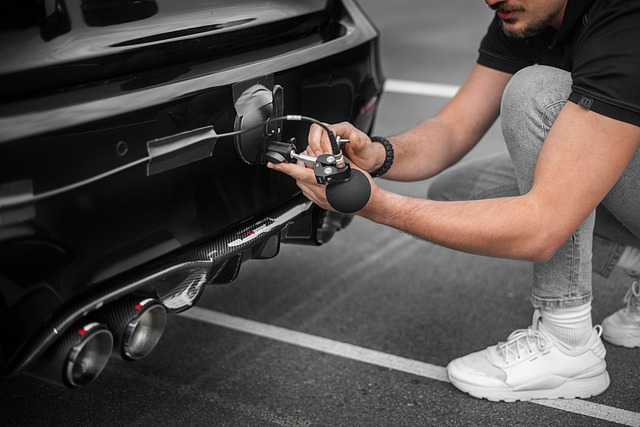Looking to register your car in California? This comprehensive guide walks you through every step, from understanding crucial registration requirements to submitting your application. First, grasp the essential details like California’s vehicle identification number (VIN) verifier standards. Next, gather necessary documents and ensure your VIN’s accuracy. Choose the right registration type and fee payment method. Finally, submit your application and receive your official registration papers.
- Understand California Car Registration Requirements
- Gather Necessary Documents for Vehicle Registration
- Verify Vehicle Identification Number (VIN) Accuracy
- Choose an Appropriate Registration Type and Fee Payment
- Submit Application and Receive Your Registration Papers
Understand California Car Registration Requirements

Before registering your car in California, it’s crucial to understand the state’s specific requirements. One key aspect is ensuring that your vehicle has a valid and accurate Vehicle Identification Number (VIN) record. This involves using a reliable VIN verifier to cross-reference your car’s information with state databases.
In California, a mobile VIN inspection or mobile VIN verification service can be incredibly helpful. These services allow you to get your VIN checked on-site, which is especially convenient for those who own classic cars, imported vehicles, or have had recent repairs that might affect their car’s registration status. By utilizing these modern tools, like a mobile VIN verifier, you can streamline the registration process and avoid potential delays or complications.
Gather Necessary Documents for Vehicle Registration

Before you start the registration process, make sure you have all the essential documents. The California Department of Motor Vehicles (DMV) requires several key pieces of information to verify your vehicle’s identity and ensure it complies with local regulations. One crucial document is the Vehicle Identification Number (VIN) verifier, which can be obtained through a mobile VIN verification service or by visiting a DMV office for an inspection.
These services offer a convenient and efficient way to complete the necessary checks. With a simple process that often involves just a few quick photos of your vehicle’s VIN plate, you can have the information verified digitally. Alternatively, if you prefer a more traditional approach, you can visit a local DMV branch for a manual inspection, ensuring all details match and your car meets the required standards.
Verify Vehicle Identification Number (VIN) Accuracy

Before registering your car in California, it’s crucial to ensure the Vehicle Identification Number (VIN) is accurate and valid. This unique 17-character code is a vital piece of information for identifying your vehicle and determining its history. A simple yet effective step is to utilize a VIN verifier to cross-check the number against database records. Many online tools and mobile vin inspection apps are readily available, making it convenient to verify the VIN’s authenticity from the comfort of your home or even while you’re on the go.
Accurate VIN data is essential for several reasons. It helps in confirming the vehicle’s make, model, year, and other specifications, ensuring proper registration. Furthermore, a valid VIN inspection can provide insights into the car’s maintenance history, accident records, and potential issues, allowing you to make informed decisions before completing the registration process. Consider this step as a crucial part of your preparation for a smooth car registration experience in California.
Choose an Appropriate Registration Type and Fee Payment

When registering your car in California, understanding the different registration types is key. Your choice will depend on factors like vehicle age and use. For instance, private passenger vehicles typically require a standard registration, while commercial or older cars might need specialized options. The state offers various classes to cater to diverse needs, ensuring you pay the correct fee based on your vehicle’s characteristics.
Fee payment is another crucial aspect. California residents can opt for online payments or visit designated DMV locations. It’s worth noting that fees vary according to registration type and vehicle age. For example, a mobile vin inspection or vin verification service might be available for added convenience, allowing you to check your car’s history and ensure compliance before registering. This step is essential to avoid any issues during the registration process.
Submit Application and Receive Your Registration Papers

After gathering all the necessary documents and ensuring your vehicle meets California’s requirements, it’s time to submit your application for registration. You can do this through the California Department of Motor Vehicles (DMV) online or in-person at a local DMV field office. If you opt for an online submission, create an account on the DMV website and follow the step-by-step process to fill out the Application for Title and Registration (form DVW-1). Here, you’ll need to provide detailed information about your vehicle, including its make, model, year, and unique Vehicle Identification Number (VIN), which serves as a digital fingerprint for your car.
Once submitted, the DMV will review your application and, if approved, issue your registration papers. You can choose to receive them in the mail or, often more conveniently, opt for a mobile vin inspection where a DMV representative will bring your registration documents to you at your preferred location. This service is particularly useful when you’re in a hurry or have multiple vehicles to register, ensuring a swift and hassle-free process for all California car owners.
Registering a car in California is a straightforward process, but understanding the requirements and gathering the right documents are essential. By ensuring your Vehicle Identification Number (VIN) is accurate using a reliable VIN verifier, you can streamline the application process. Choose the appropriate registration type and fee payment method, then submit your application. Within a short time, you’ll receive your official registration papers, allowing you to legally operate your vehicle in the Golden State.
